All Stories
-
 Astronomy
AstronomyThe Arecibo Observatory will remain open, NSF says
The iconic Arecibo radio telescope has survived Hurricane Maria and dodged deep funding cuts.
-
 Archaeology
ArchaeologySkeletons could provide clues to who wrote or protected the Dead Sea Scrolls
Skeletons suggest a group of celibate men inhabited Dead Sea Scrolls site.
By Bruce Bower -
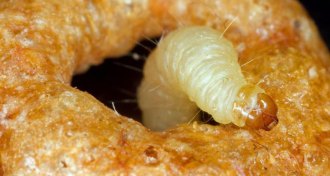 Animals
AnimalsThe key to breaking down plastic may be in caterpillars’ guts
Caterpillars that feast on plastic have different gut microbes than those that eat a grain-based diet.
-
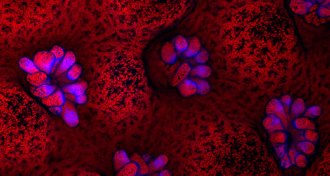 Animals
AnimalsFluorescence could help diagnose sick corals
Diseased corals fluoresce less than healthy corals, and a new analysis technique can help spot the reduced glow.
-
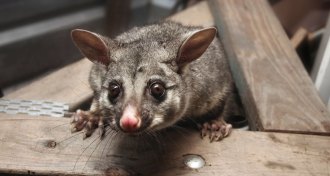 Genetics
GeneticsCurrent CRISPR gene drives are too strong for outdoor use, studies warn
Self-limiting genetic tools already in development may be able to get around concerns surrounding the use of gene drives.
By Susan Milius -
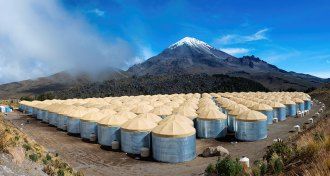 Particle Physics
Particle PhysicsExcess antielectrons aren’t from nearby dead stars, study says
Pulsars might not be behind excess antimatter, gamma-ray observations suggest.
-
 Physics
PhysicsColliding black holes are reported for a fifth time
LIGO spots another merger, this time with less fanfare.
-
 Tech
Tech50 years ago, artificial limbs weren’t nearly as responsive
Artificial limbs have come a long way since 1967.
-
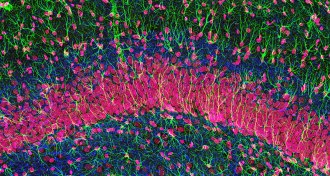 Neuroscience
NeuroscienceStudy casts doubt on whether adult brain’s memory-forming region makes new cells
An examination of 54 human brains suggests that adults don’t grow new neurons in the hippocampus, contrary to several widely accepted studies.
-
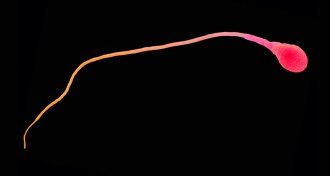 Health & Medicine
Health & MedicineHow dad’s stress changes his sperm
Stress may change sperm via packets of RNA in the epididymis, a mouse study suggests.
-
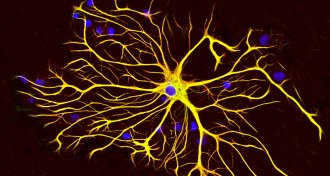 Neuroscience
NeuroscienceThe brain’s helper cells have a hand in learning fear
After a traumatic experience, rat brains release inflammatory signals that come from astrocytes, suggesting a new role for the brain’s “helper” cells.
-
 Science & Society
Science & SocietyIn science, some big risks are worth the rewards
Acting Editor in Chief Elizabeth Quill says scientists sometimes take risks that can lead to significant rewards and important discoveries.